The government has confirmed that the United Kingdom and the Republic of Ireland will refresh their defence cooperation memorandum of understanding (MoU), first signed a decade ago.
Lord Coaker, Minister of State at the Ministry of Defence, told peers:
“In 2025 there have been a number of discussions between the United Kingdom and the Republic of Ireland on defence. The Permanent Secretary visited Ireland in January; the Chief of the Defence Staff visited in February, marking the first visit of a Chief of the Defence Staff to Ireland since 2016; and the Second Permanent Secretary visited in April.”
The forthcoming MoU update was first set out in the UK-Ireland 2030 Joint Statement, released after a bilateral summit in Liverpool on 6 March 2025. The statement committed both governments to a wide-ranging programme of cooperation “informed by our co-guarantorship of the Good Friday Agreement” and framed within the need to respond to a “challenging geo-political and international security environment”.
On defence specifically, the document confirmed: “Since 2015, the UK and Ireland have cooperated on defence on the basis of a Memorandum of Understanding. We will pursue implementation of all aspects of that agreement, particularly in the areas of military training and education. To reflect the rebuilding and strengthening of our partnership, today we agree to review and update the Memorandum of Understanding on Defence by our next Summit in this series.”
Responding to concerns raised by peers about Ireland’s neutrality and limited defence spending, Lord Coaker added: “We are seeking to establish a new memorandum of understanding between the UK and the Irish Government by next year.”
Baroness Hoey pressed the minister on what she described as a one-sided arrangement. “Does he agree that it is important that the British public understand just how much support the Irish Government get from the United Kingdom and NATO for their defence capabilities, and that they keep their neutrality without having to pay any contributions? … Will the Minister tell them that co-operation is a two-way process?”
Lord Coaker replied that “Michael Fallon and Simon Coveney signed an agreement in 2015 on defence co-operation between the two countries, while respecting Ireland’s neutrality and the fact that it is not a member of NATO. Like many countries across the whole of Europe, whether in NATO or outside, Ireland has been forced to confront the reality of what we face.”
The joint statement also highlighted practical areas of security collaboration beyond defence training. It pledged closer cooperation on maritime security, “with a particular focus on critical undersea infrastructure”, and on cyber security, including information-sharing, skills development, and joint research projects. Both governments also committed to strengthening national resilience through greater cooperation on emergency planning.
Baroness Goldie argued that any renewal “would require to be underpinned by an appropriate financial arrangement”, while Lord West of Spithead compared Ireland’s small navy with Norway’s much larger fleet and asked: “Is it not time that we made it clear to the Irish that, in this globally dangerous world, they have to make an appropriate contribution to defence?”
Lord Coaker pointed to signs of change in Dublin: “We are witnessing the recognition on the part of Ireland that the changed environment in which it finds itself requires attention… Discussions are taking place, in an appropriate way, between us and Ireland about what we can do around, for example, critical underwater infrastructure. Ireland is also looking at establishing its own radar capability.”
Peers also pressed on the broader framework. Baroness Smith of Newnham suggested bilateral work through the UK-EU security relationship. Lord Coaker confirmed: “Keir Starmer and the Taoiseach agreed, just a few months ago in Liverpool, that there should be a new memorandum of understanding, one pillar of which should be defence and security. That is a major step forward.”
The joint statement further located defence cooperation within a wider strategic agenda. It committed both countries to intensifying foreign policy collaboration, including joint work on the UN Peacebuilding Architecture Review, the World Bank’s Fragility, Conflict, and Violence Strategy, and the Women, Peace and Security agenda. It also pledged cooperation in areas such as criminal and family law, justice reform, and energy security in the Celtic and Irish Seas.
Baroness Foster of Aghadrumsee highlighted Northern Ireland’s role, noting that it was strategically significant for both the UK and the Republic. Lord Coaker responded: “I agree very much with the noble Baroness on the importance of Northern Ireland, with respect to not only its geography but the skills and commitment contributed by the people of Northern Ireland to industrial development.”
Lord Bew pressed for greater openness: “Does the Minister agree that it would help the debate… about NATO and neutrality if we could be very open in the United Kingdom about the scale of the work that already goes on… in which the United Kingdom helps the defence of the Irish Republic?”
Lord Coaker concluded: “The memorandum of understanding between the UK Government and the Department of Defence in Ireland… was done in 2015 and was updated and refreshed in 2025, so that we have a fresh memorandum of understanding for 2026. That is something to be celebrated in Ireland and in the United Kingdom.”


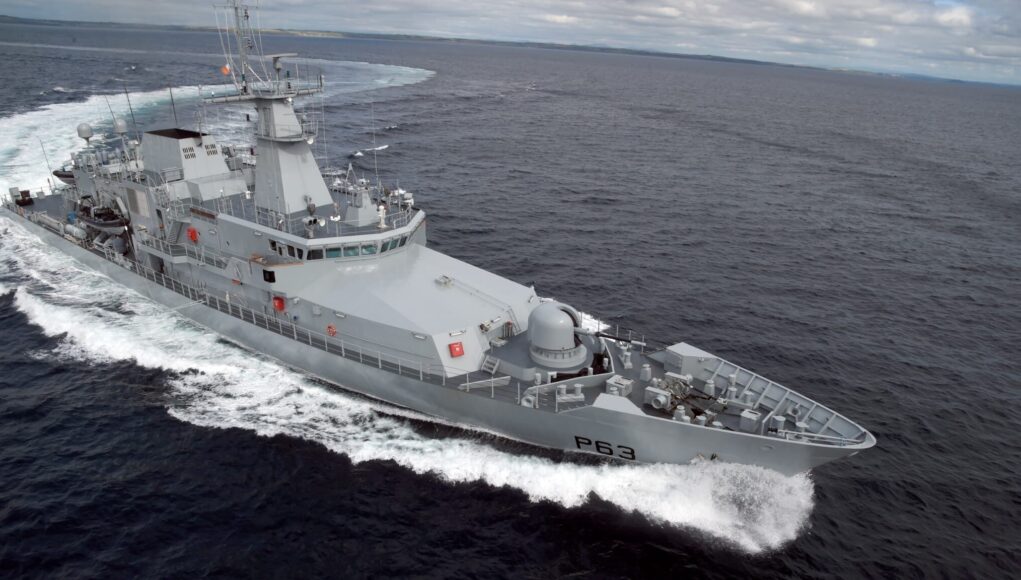

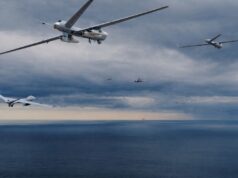
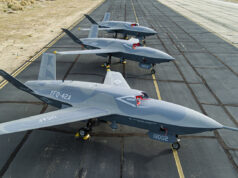
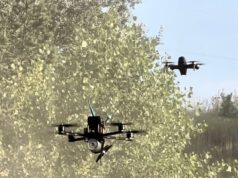
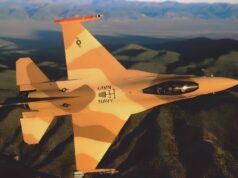

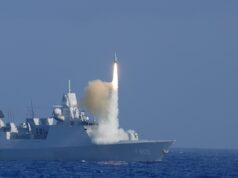

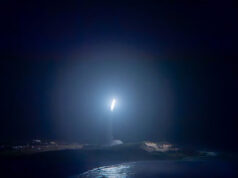

As I’ve said many times. I’ve no problem with this.
This is primarily for our benefit.
The ability for the RAF to be able to access Irish airspace to confront an incoming threat further out rather than waiting till that threat is on our western doorstep seems eminently sensible to me.
I believe all this started post 9/11 to confront unresponsive airliners. That went hand in hand with creating rudimentary QRA facilities at some of our western airfields for forward deployment of Typhoon. I read report’s that Yeovilton, Culdrose, Boscombe were the locations involved.
With increased Russian activity in the area now, it seems wven more sensible.
No problem at allBUT you would have thought after all this time they could have made some effort to protect their airspace!
I don’t think anyone has a problem with it in terms of the benefits to the UK.
The main issue is the ROI should not be free loading by using the UK to make up their own short falls in defence spending.
They are a very wealthy country now that enjoy larger government surpluses thanks to their tax policy, they can easily afford to protect their own airspace and undersea cables they just choose not to.
Every time we send out a Typhoon to protect THIRE airspace it costs the UK taxpayer. They should buy some F16s and a radar and protect their country. Do long as we do it tgey will not lift a finger.
I have no issues with this despite Ireland constant theft of ours and the worlds tax revenue.
However the Irish government and its people should stop this nonsense of keeping it a secret so they can go on blaming us for the crimes of Cromwell or the Norman invasion.
It’s time for Ireland to grow up and start developing industry of its own that doesn’t involve the EU sponsored, American sanctioned steeling of tax revenues from many of the worlds poorest countries while simultaneously failing to contribute anything to the rules based order and claiming sone form of moral superiority over their free riding.
PS no one wants to hear about your tiny UN mission in Lebanon that’s no excuse for not being in NATO like every other civilised European country.
Wasn’t aware Austria, Switzerland and Malta weren’t “civilised”
What utter nonsense. Please explain, how does the Republic of Ireland steal the world’s tax revenue?
You should know that Ireland happens to have a very strong Economy that ranks among the wealthiest in the world in terms of GDP per capita. It also attracts significant FDI (Foreign Direct Investment) due to its favourable corporate tax rates, skilled and motivated workforce, and its membership in the European Union.
After I left the Royal Navy I lived and worked there for 25 years, and now in my 60th year I can look forward to a very nice Irish State Pension, as well as one from the UK! Best move forward into the 21st Century eh???
30% of Irish Tax revenue is Corporate Tax. It’s a tax haven where Google, Microsoft et all park a building somewhere in Ireland and save billions in Taxes while contributing nothing else to the Irish economy. Nothing wrong with that as a policy but it does tend to piss some countries off. Plus since you are raking it in at the expense of others, it’s not too much to ask them to cover the cost of their own air space is it not?
Don’t forget Apple
How many times has the super strong Irish economy needed a bail out from the uk and tax stealing I don’t think there doing that the uk had a chance after brexit to turn the uk into a tax haven instead decided to turn the multinationals off and go to Ireland I say good luck to Ireland but let’s not kid ourselves in saying the Irish economy is great
Never a bail out from the UK. The EU did bailout Ireland and it was paid back in full.
Incorrect the U.K. bailed out Ireland in 2010 with 8 separate payments from 2011 to 2013 totally 3.2 billion which they had paid back by 2021
That was part of a package, so suggesting multiple payments is a stretch, not too mention the fact that it was in part a backdoor bailout of one of the UK banks through its sub company Ulster bank. Also of course the fact that the UK was offered earlier full repayments like others but refused to accept.
And you seem to happily be ignoring the fact that the Crash was in no small part a global event, with other nations going having to go to the IMF and EU, or the UK’s own austerity because of the Crash.
So bottom line and u don’t like to accept it for some reason the U.K. along with other countries had to bail out Ireland and its powerful economy is that what you’re saying ?
Asks how ROI steals tax revenue, goes on to explain how ROI steals tax revenue..
One man’s favourable corporate tax rate is another’s tax heaven, why do you suppose American companies like Apple route all global sales through Ireland?
Do you think it’s fair a phone being bought in Nigeria pays corporate tax in Ireland?
Good Morning Daniele. I hope you are well! One would hope that the ROI And UK could come up with some fresh ideas. We understand the concept of neutrality but in the sense that those of us reading between the lines might reasonably assume, that given a push and shove situation, most Swiss people would firmly fall on the side of Western democratic nations and even in the ROI, notwithstanding some painful history and NI, the Irish people might pick their British neighbours as allies over the likes of Putin and Kim!
Cheers from Durban-just had our first spring rains after a long Winter drought
Morning my friend.
You’d hope so. By my experience, It is sad so many seem to hate us, while happily living in the UK at the same time!
I’d agree they need to do a lot more, but no need to fall out over it.
If they do raise their game, sub surface defence of the myriad network of cables seems the best place to start.
Hi Daniele-yes many living in the UK seem to feel no shame in biting the hand that feeds them Agree about the threat posed to cables-must be very difficult to protect completely! However if our enemies target us with damage to infrastructure and cyber attacks then the West can respond in kind!
The agreement long predates 9/11, with suggestions it dates back to the 60s in one form or another, with the RAF handling MPA/SAR for much of that period, up to someone in the RAF having a laugh in suggesting a Nimrod flight be based in Ireland in the 80s.
Investment and reform is happening, limited to the scale involved, the capacities issues that simply can’t be ignored and politics.
Thanks, Mark.
Honestly, this doesn’t bother me. They don’t have anything that could provide QRA to intruding aircraft. Hell, they have the Internet cables to check aren’t getting anchor cuts… Maybe some large and armed patrol boats with helicopters, etc.
Agree.
Neutrality is all well and fine until a belligerent nation/militia chooses to ignore it because it inconveniences their military/political ambitions.
Even the smallest nation needs some preparation for defence.
There is a very interesting article on the BBC website and highlights the lamentable situation facing the Irish Defence Forces. It is about a drug bust that they could only just manage as they were able to get their only operational ship into position, but had to wait while they converted an air ambulance, yes an air ambulance, in to a troop carrier with a couple of machine guns mounted so that they could land their Rangers on the cargo ship involved…
To their credit the Irish police seemed to have good intel on the drugs operation and their service people clearly managed to improvise an impressive operation.
It is actually quite a good read.
Cheers CR
That is not true One of the Air corps AW139 deployed the Rangers to that ship.
The report states that all 5 of the Irish Air Corps helicopters were in the hangar waiting for spares and maintenance. If you have a source I would be interested to read.
Thanks CR
There’s 6 139s actually and they cover pretty much any and every role the state needs for helicopters with a host of ATCP roles, one major unplanned one has been fire fighting across the island which has unfortunately ripped the arse off the the fleet, while another airframe covers air ambulance operations from the midlands. On the day the planned airframe went U/S so the quickest option was to use the one already operational.
The replacement procurement is underway at the moment and an increase to 10-12 suggested, with plenty of rumours as to what.
So was the operational airframe the air ambulance? If so the numbers would match those in the article and explain why they had to switch airframes in a hurry. Nevertheless, there is a severe lack of creditable defence capability within the Irish State and the fact that they are struggling to man their OPV and keep their helicopter fleet properly maintained underlines the issues.
My final point about the quality of their service and security people is simply underlined by your comments. The Irish Defence Force appears to be even more over stretched than ours.
The Irish population is about 7.2million (est. 2024) and GDP is about $570b (est. 2024), compared to Norway’s population of 5.6m and GDP of $606B. Norway manages to order 5x T26 and operates F35 fighters. True Norway has North Sea oil and Gas and was sensible enough to create a Sovereign Wealth Fund but Ireland could do a heck of a lot more to look after it’s security and defence. Even just making sure the kit they have is properly supported would be a big step forward and I am sure they could afford to buy a second oil support ship to create a offshore infrastructure support capability along the lines that the UK is taking.
Article is also worth a read as it sets out the scale of the trans Atlantic cocaine trade – scary stuff and highlights the challenge that smuggling in general presents to us all.
Cheers CR
Ireland also has a Sovereign Wealth Fund.
On that day it was planned to be tasked as the air ambulance, but outside of swapping the crew that’s pretty much it in terms of switch over, the issue is that the decision as been made that the 139s are end of life, and on the day for various reasons the others weren’t available, pretty sure every military has similar issues. The issues in the NS are not new and are being worked on with 3 hulls now operational, but given the Rn is shedding hulls for lack of staff or having them alongside for extended periods, please stop acting like it’s a unique problem.
Further more you might want to be a bit more accurate with your googling, that 7.2 million is the island of Ireland, the Republic is only 5.2 million, and unlike Norway doesn’t have a national wealth fund, or conscription, minor differences I’m sure you’d agree.
Mark,
I apologise if I have caused any offence. I was trying to highlight that the Irish Service people were very good at their jobs but were let down by their political leaders. I was also trying to point out that they could be well served with relatively small increase to improve the capabilities they already have, some of which you indicated are already underway i.e. the helicopter procurement program. The problems faced by the Irish military is indeed similar to that faced most western militaries, including the UK which I regularly comment on. As for the population – typo, apologies.
CR
No apologies necessary, its just a bit frustrating sometimes. In terms of the interception I do find it funny that it’s being treated as news, it was covered in all the Irish media at the time, from the issues to the circumstances, between the bad weather causing the shore gang to miss the interception and run aground to the drug runner captain panicking which screwed all the planning, basically a lot had to be improvised as the situation when sideways.
As I’ve said the slow progress towards LoA2 is happening, for the AC there’s already 4 new 135’s on order and the 139 replacements are crawling through the G2G purchase, with the rumours from the Poles, to the French to the UK being involved, either way between the 135’s and the hoped for replacements the helicopter fleet will actually be doubled by 2030.
The main problem I have is with some here who while acknowledging the challenges the UK faces in its own issues (from recruitment to retention to procurement) think that a military of less than 10K in total can somehow lurge into mass expansion from a standing start when it and its civil service counterparts have never managed more than 1 major capital procurement at a time. Political will or not (and to be fair its currently somewhat there), the DF simply can’t jump to fighters or frigates from where they are, and it will take time for that to change.
145’s not 135’s.
Were the troops were using “Spud Guns” ?
Naughty 🙂
Yes, I read that example of Irish UK – interdependence; a clear and present danger to both our countries; but you beat me to post. The Irish need more manpower, helo and opv resources for drug interceptions.
Not to mention monitoring and protecting those undersea data cables that come ashore in various places on the Irish Western seaboard. Have a few of them taken out and the whole of the western economy is take a hit as the internet would be seriously disrupted. That is quite a responsibility that they appear not to be acting at all, although to be fair we are struggling to get our capability up and running properly but at least we have bought a ship and fitted it out…
Cheers CR
Yes, I have sympathy for the Irish in wanting to conserve their tradition of neutrality, and the 1916 wounds are still a bit raw in some, but it is time to move on and work together for the sake of Europe as a whole. A secure UK is in Ireland’s and Europe’s interest.
It will be interesting to see what Sinn Fein make of this?
Why? They are in opposition, so other than complaining about everything and anything they don’t matter.
To see what solution they would offer instead.
They are in opposition, they don’t offer solutions, they just proclaim everything the government is doing is wrong, same all over the world.
I know plenty of people will get hot under the collar about the ROI’s perceived lack of investment in its own defence. And yes, this is frustrating when they have a large sovereign wealth fund and, for example , pay their doctors vastly more than UK doctors, whilst not having many basic elements of self-defence. For historical, cultural and political reasons spending proper money on defence hardware is a non-starter and nothing us keyboard warriors can do will change that. However, it is likely the RoI will invest in ‘non-military’ defence, for example, undersea protection . This would be very helpful, even if it doesn’t grab the headlines that buying 15 Gripens would.
With how vibrant the Irish economy is currently, maybe they contribute financially? Right now the Republic are the biggest freeloaders n Europe.
Right now ?
Ireland could do quite well out of Nato if they followed the Icelandic model of allowing Nato build an airbase and port facility for Nato ships and aircraft to be based there regularly. From local employment to security of its shoreline and air space without having to spend a penny. They would just have to wind their necks in a little when it comes to neutrality (if there is such a thing)
There’s no political party that would survive the fallout of such an agreement, even if other nations were willing to agree to it, which in itself is doubtful.
Currently they’re fine with being a stopover for Hercules and C-40 737’s. Besides, they have port facilities in Spain, Portugal, the UK, Norway, etc.
There’s just better locations with more extensive facilities and skills awaiting in other locales.
At the moment a good proportion on the data too and from Europe and North America passes very close to the SW coast of Ireland so what better place to have a port that supports a force that can protect these essential forms of communications/data transference and an airbase to help with the surveillance of this area. This would also help Ireland as is any of these communication lines were cut/destroyed then it would also effect Irelands ability to do business.
Need to persuade them to buy 5 T26s or some other warships – pity they wouldn’t be able to crew them.
A Type 31 maybe in the future along with a few EU patrol corvettes.
Well to be fair the DOD aren’t thrilled with the request for the 31, add it to all the other rumours and leaks
Nor are they about my request to set up a surveillance/naval base on the Blascaod islands. 🙂
Ireland utterly takes the p*ss on Defence.
not sure that being neutral is compatible with modern day EU membership….perhaps they will realse that at some point
Why? Ireland isn’t the only neutral nation in the EU.
no they’re not but I expect the neutral countries will find themselves under increased pressure
And short of a treaty change that doesn’t mean much, and nobody is opening up the treaties. Each nation will make its own choices.
How about the RAF bills the Republica for fuel, wear and tear, and general costs everytime they have to go into their airspace to defend it. Maybe fit a taxi-style meter so they know we’re not fiddling them 😉
I always find it funny posts like that, the U.K. most likely sets the terms of whatever the understanding is, if there isn’t a bill blame your governments for decades, also point out when the RAF “go into Irish airspace.
Basic facts we know:
One, the NDP doubled the capital program funding for the next 4 years which is pretty much the capacity that the DF can absorb, budget up next but there’s also the Presidental election with a major Tankie as a candidate, interesting how the government plays that.
Two, several of the LoA2 capital projects are underway, hence the budget increase, they are likely the Radar system, the army vehicle fleet replacement and the helicopter replacement fleet, MRV seems to be kicked again as the NS are arguing with DOD, but the P60s are getting towed sonar arrays.
Three, Recruitment is up so far this year and Retention seems to be stabilising, but too soon to determine a trend from either, not unique to the DF, as seen in the comments sections here on British military numbers.
Four, plenty of rumours about the potential new kit, nothing firm as yet.
And Five, it’s hard to see in such an arrangement the U.K. not being the one that sets the terms that suit the U.K., so maybe Lords time should be better spent yelling at this and all other previous governments for the last god knows how long, and Five a) the Lords yelling about this will have exactly zero input into Irish decisions.
You summarize well Mark the state of Irish defence procurement and the overall environment.
I for one grow impatient with the delays in committing to a lot of these enhancements.
I know back to back to back coalition governments are not aiding in any of these quick decisions.
It’s a funny thing Irish neutrality, because they have never actually been neutral, the Irish government always knew that the Soviet Union planned to conquer Ireland if it ever conquered the UK.. they even invited the British army onto Irish soil during the Cold War to fully map the Irish coastline, this was essentially a tripartite agreement between the UK, US and Ireland.. Ireland hosted the British army who mapped its entire coastline for possible landing and invasion routes, and the UK government would then pass it onto the U.S. government so if Ireland was ever conquered by the USSR either the UK and or US could mount a counter invasion.